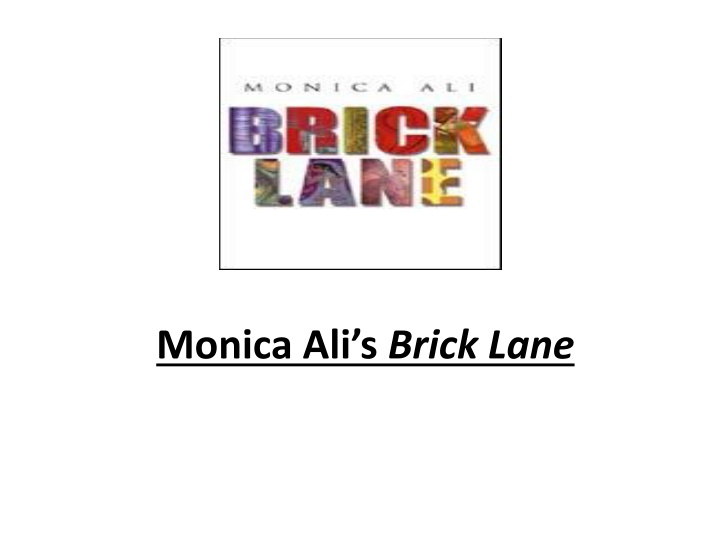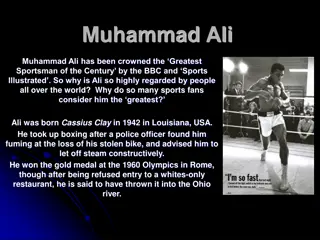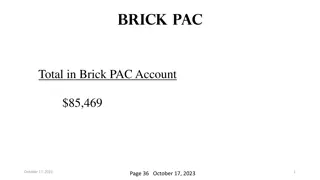Monica Ali’s Brick Lane
Monica Ali's novel "Brick Lane" is a poignant exploration of immigrant experience in London. The story follows Nazneen, a Bangladeshi woman who navigates the complexities of cultural identity, love, and self-discovery in a new land. Ali's prose captures the struggles and triumphs of immigrant life, offering a moving portrayal of human resilience and adaptation. Through Nazneen's journey, the novel delves into themes of family, tradition, and the search for belonging, painting a rich tapestry of emotions and experiences amidst the bustling backdrop of Brick Lane.
Download Presentation

Please find below an Image/Link to download the presentation.
The content on the website is provided AS IS for your information and personal use only. It may not be sold, licensed, or shared on other websites without obtaining consent from the author.If you encounter any issues during the download, it is possible that the publisher has removed the file from their server.
You are allowed to download the files provided on this website for personal or commercial use, subject to the condition that they are used lawfully. All files are the property of their respective owners.
The content on the website is provided AS IS for your information and personal use only. It may not be sold, licensed, or shared on other websites without obtaining consent from the author.
E N D
Presentation Transcript
Ali asserts in 'Where I'm Coming From' "I can write about it because I do not truly belong. Growing up with an English mother and a Bengali father means never being an insider. Standing neither behind a closed door, nor in the thick of things, but rather in the shadow of the doorway, is a good place from which to observe."
Hasinas Letters Some critics suggest poor English is thus associated with "primitiveness" and "problematically representing [a] failure to escape from barbarity and persecution." (Michael Perfect 112) However, if the letters are interpreted as Nazneen paraphrasing illiterate Bengali they could be considered a literary device intending to incite a response. Particularly if we are to accept Michela Canepari Labib's suggestion that it is "an attempt to dislocate, both syntactically and lexically, the language of the former [colonial] master (212).
In Brick Lane, Chanu (Nazneens husband) is desperate to preserve his cultural heritage. I m talking about the clash between Western values and our own. I m talking about the struggle to assimilate and the need to preserve one s identity and heritage. I m talking about children who don t know what their identity is. I m talking about feelings of alienation engendered by a society where racism is prevalent. I m talking about the terrific struggle to preserve one s sanity while striving to achieve the best for one s family. (113)
Karim and Nazneens relationship She was his real thing. A Bengali wife. A Bengali mother. An idea of home. An idea of himself that he found in her. Nazneen realises by the end of the novel that they had made each other up .
[M]ulticultural Bildungsroman" Michael Perfect argues that Brick Lane can be termed a "multicultural Bildungsroman". He cites the stereotypes the novel opens with as "counterpoints" to the narrative of empowerment.























